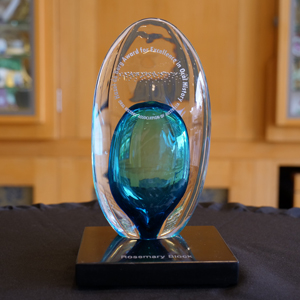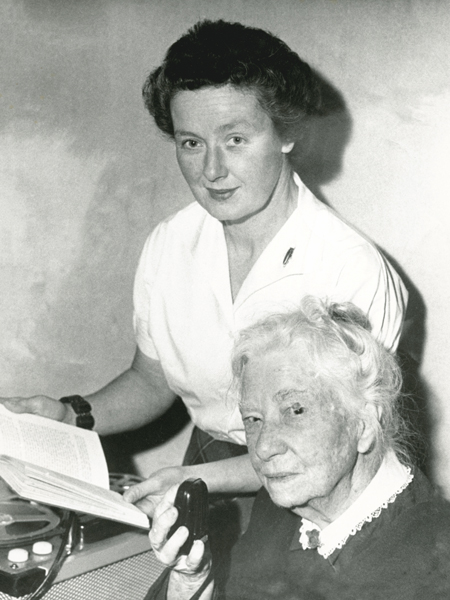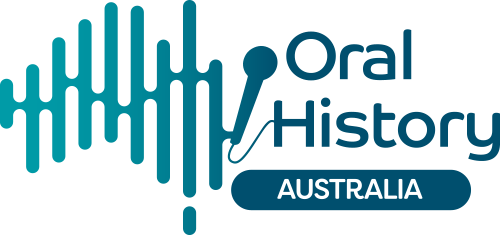Every two years, in conjunction with our national conference, Oral History Australia (OHA) presents an award to recognise a person who has made an outstanding contribution to the field of oral history over a considerable period of time.

The award is named after Hazel de Berg, one of Australia’s pioneering and most prolific oral historians, who recorded just over 1300 interviews during her lifetime.
From 1957, Hazel de Berg documented Australia’s social history by recording poets, novelists, historians, painters, musicians and scientists – people who were contributing to the ongoing intellectual life of Australia.
A significant number of her interviews are now held in the oral history collection of the National Library of Australia as the Hazel de Berg Oral History Collection, a collection which comprises approximately 1300 hour-long taped interviews.
The inaugural Hazel de Berg Award was presented to Beth Robertson at the International Oral History Association Conference in Sydney 2006. The OHA’s national committee determines the winner of the award based on nominations. It is an open award and is not restricted to OHA members.
The De Berg family has generously offered to provide this award and arranged for its design by a glass artist. Each award is inscribed with the recipients name and the date and accompanied by a citation.

2024 Hazel de Berg Award recipient
Citation
Recipient: Dr Barry York OAM
Contribution to the field of oral history
For over four decades Dr Barry York has made an outstanding contribution to the field of oral history in Australia. Barry’s expertise is vast. As a Historian at the Museum of Australian Democracy from 2006 to 2016, Barry championed oral history, playing an important role to revive and strengthen their oral history collection. He worked extensively with the National Library of Australia (NLA) and bolstered the depth and breadth of their oral history collection also. Barry has conducted interviews for other institutions such as the ACT Heritage Library and Victoria University and has made particularly substantial contributions to oral histories of migration and politics. He has also been an ardent advocate for the inclusion of diverse voices in oral history collections, recording across many fields while demonstrating great sensitively and skill. He continues to offer guidance online for novice through to established oral historians alike.
Promotion and raising awareness
Barry has been a strong advocate for oral history in Australia demonstrated through a range of publications and media. Significant contributions include Speaking of Us: Voices from Twentieth Century Australia (1999), which drew from the NLA’s oral history collection to illustrate experiences of Australians across a century of change. He also authored a chapter about oral history in the NLA’s Remarkable Occurrences (2001). Barry provided thoughtful reflections on best-practice interviewing techniques in the field of migration. For example, in 1993, the Centre for Immigration Studies published an interviewer’s guide co-authored by Barry with Mark Caruana. Barry maintains an oral history resource channel on YouTube, which has thirty-three short documentaries based on oral history excerpts that provides broad access to new audiences on a contemporary platform.
Significant contributions
Barry’s major oral history contributions include:
- Principal interviewer, oral history program, Museum of Australian Democracy (2006-2016)
- Maltese-Australian Folk Life and Social History Project, National Library of Australia (1983-2000)
- Polish Australians Oral History Project, National Library of Australia (1996-2007)
- Australian Lebanese Historical Society Oral History Project, National Library of Australia (2016- 2024)
- National Union of Australian University Students Project, National Library of Australia (2017-2024).
Australia’s oral history heritage is much richer, expansive and inclusive because of the enormous contribution Barry has made over the course of his professional life and in retirement and is a worthy recipient of the 2024 Hazel de Berg Award for Excellence in Oral History.

